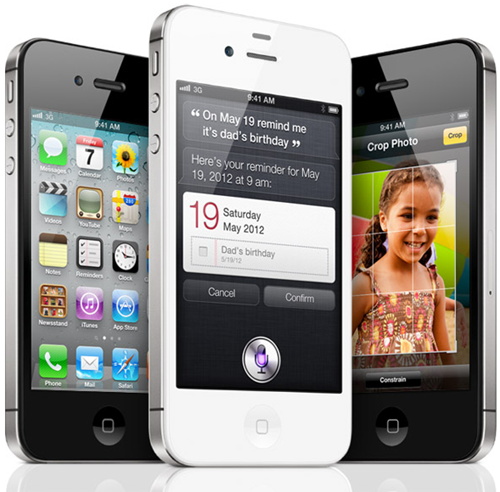With Apple’s smartphone sales having continued to grow exponentially since 2007, rival Samsung’s rise to become the number one smartphone manufacturer has shocked many, but should we really be surprised? Here, we take a look at some of the key areas Apple appears to be faltering, and how improving on them could help Tim Cook’s company reign supreme once again.
Choice
Currently, if you want an iPhone, you’re constrained to new, old, or very old, and if you’re looking for the latest model, you have a choice of two colors, with three different price brackets depending on how much flash memory you require. There have been some suggestions of an iPhone "Nano" type device surfacing, which would, presumably, scrimp on some of the higher-end features (dual-cores and whatnot), enabling those on a post-recession budget to enjoy an iPhone experience without having to resign themselves to an iPod touch.
While releasing a cheaper phone would scarcely complete with the plethora of devices offered by Samsung, it would certainly be a good start, and it would make the iPhone a much more viable purchase in the eye of the less wealthy consumer.
Price
Tying in with the aforementioned, if Apple wants to reinstate itself as the number one vendor in terms of shipments, something must be done about the prices. Even on contract, consumers have to pay around $200 minimum to get their hands on the latest iPhone, with carriers selling at an initial loss before recouping their money through the agreement.
Apple is not renowned for lowering prices under any circumstances, and it has been argued many times that high prices have prevented Mac OS X from mounting a serious challenge to Windows. Then again, Apple does – and in fact, always has – prided itself on producing premium products at higher prices, and hasn’t done too badly as a consequence.
However, the smartphone industry is unique, and with so many good mid-range phones offering the features of an iPhone for the third of the price, Apple will need to do something to draw consumers away from Samsung and Android, and a cheaper price point would be the most logical bait.
A complete re-think of the pricing structure as a whole from a company of Apple’s motif seems virtually impossible, which does, if only slightly, render the introduction of a no-frills iPhone something of a stronger possibility.
Screen Size
While more than enough for the average thumb, the iPhone’s 3.5" screen is looking more and more minute as the years have passed. The iPhone 4 brought forth a crisp Retina display, which certainly had that "wow" factor, but with nearly two years now passed since it released, is it time for a larger display?
While it may not necessary need to replicate the extremities of some Samsung devices, even going edge-to-edge on the current form factor would push the display over the 4-inch mark, giving iPhone users much more real estate from which to enjoy the many games and apps available over at the iconic App Store.
4G LTE
Seems like a foregone conclusion, but worth including anyway. Rivals have been releasing 4G-compliant devices for a long while now, and since the latest iPad now boasts 4G LTE connectivity, we’ll not dwell on the subject, and instead presume it’s a certainty.
Design
Yes, the iPhone looks sleek and feels likewise, but in 5 years, the design has only changed three times (give or take). I was – and still am – fairly pleased with the look of my iPhone 4S, but I’m not going to lie, yesterday’s iPhone LM concept has left me yearning for something a little more cutting-edge.
Releasing one device per year is OK, however keeping the same design running for two years seems a tad lazy, and no matter how celebrated a design becomes, there’s always room to improve and innovate.
It will be interesting to see how Apple does respond with the next device, although it will have to watch on as Samsung’s Galaxy S III device hits the market and continues to pull its Korean rival further away in terms of devices shipped.
How do you believe Apple should go about re-asserting its authority over its arch nemesis? Feel free to leave your comments and critiques via our Facebook or Google+ pages.
For discussion on this topic: Check out the threads on Facebook or Google+.
You can follow us on Twitter, add us to your circle on Google+ or like our Facebook page to keep yourself updated on all the latest from Microsoft, Google, Apple and the Web.

